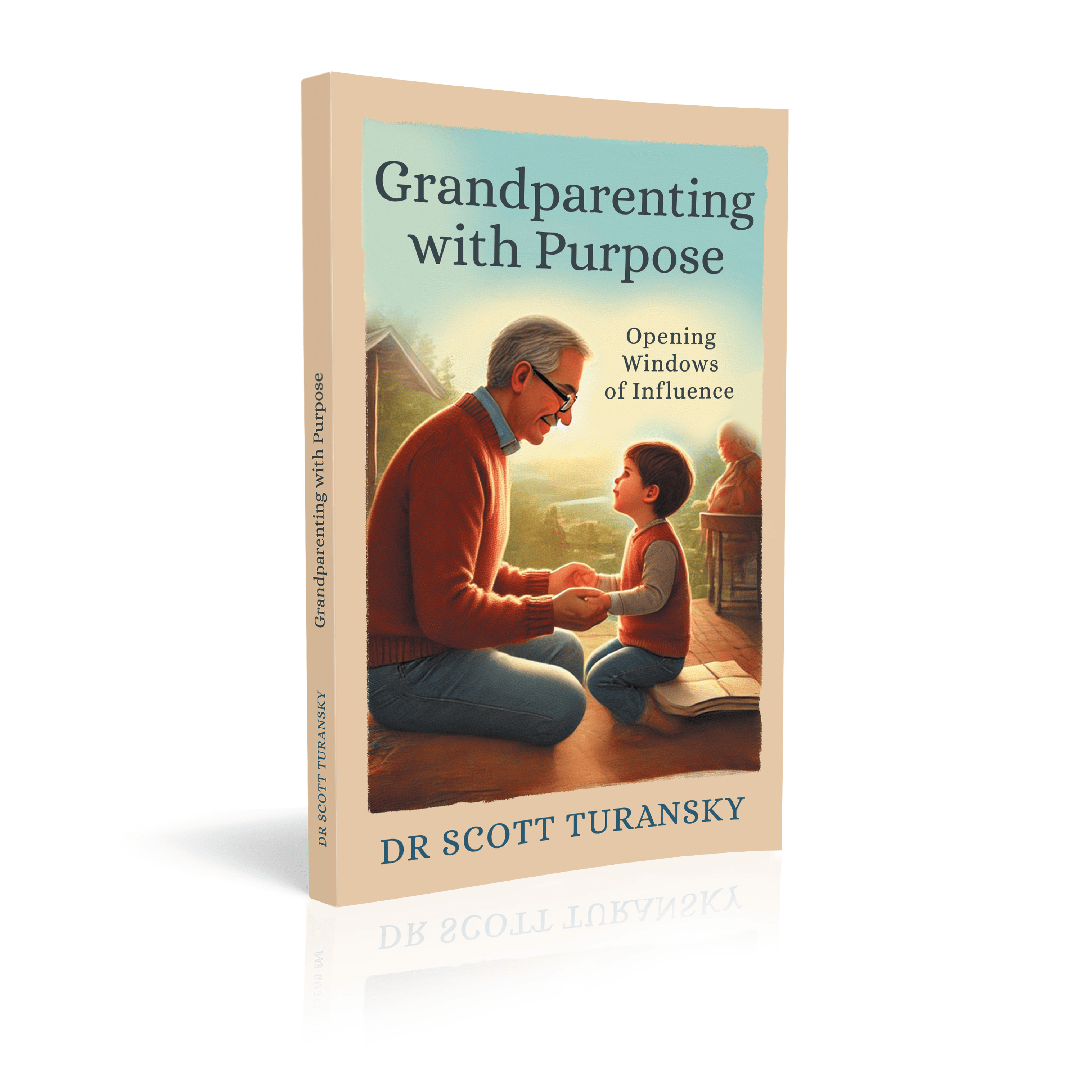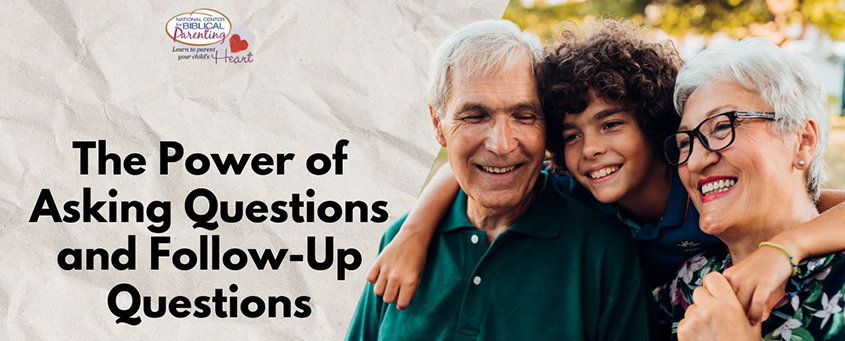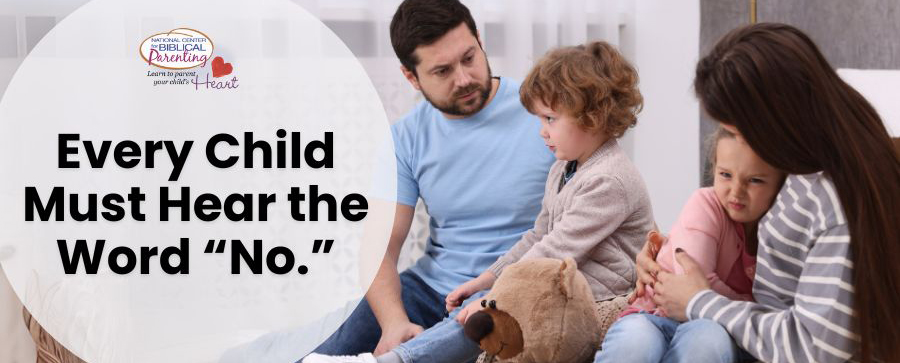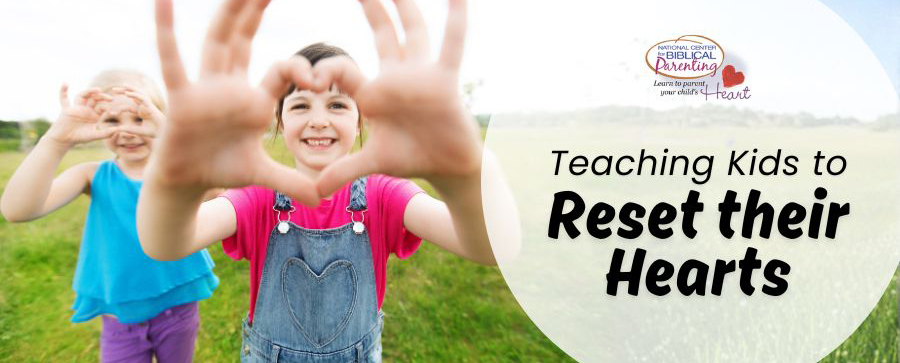The Power of Asking Questions and Follow-Up Questions

One of the most powerful tools grandparents have for building strong, lasting relationships with their grandchildren is also one of the simplest: asking thoughtful questions. But asking questions is more than just making conversation—it’s about fostering connection, building trust, and encouraging the next generation to develop meaningful relationships with others.
When grandparents show curiosity and engage in deeper conversations, they model the kind of intentional relationship-building that reflects God’s love and wisdom.
In this post, we’ll explore how asking questions—and following up with more questions—can strengthen your bond with your grandchildren. We’ll also look at how you can teach them to foster deeper connections with others through intentional conversations.
When you ask a child thoughtful questions, you communicate, “I care about you. Your thoughts and experiences matter to me.” Grandchildren—like all of us—feel valued when they know someone is genuinely interested in their lives. Proverbs 20:5 says, “The purposes of a person’s heart are deep waters, but one who has insight draws them out.” Thoughtful questions draw out the treasures hidden within a grandchild’s heart, building trust and encouraging them to share more of themselves.
How to Ask Great Questions and Follow Up
The art of asking questions starts with curiosity, but it flourishes when it’s followed by good listening. The key is not just to ask a question and move on but to follow up with another, allowing the conversation to go deeper. Here’s how:
- Start with Open-Ended Questions: Avoid yes-or-no questions. Ask things like, “What was the best part of your day?” or “What’s something new you’ve learned this week?”
- Follow Up with Curiosity: After they answer, ask a follow-up question based on their response. For example, if your grandchild says they loved their soccer game, you could ask, “What did you enjoy most about playing today?” or “How did it feel to score that goal?”
- Create Space for Silence: Children need time to gather their thoughts. Resist the urge to jump in too quickly. Give them room to think, and they’ll learn to articulate their feelings and ideas more clearly.
- Affirm Their Thoughts: Reflect back what you hear to show that you’re listening. Say, “That sounds like a really exciting game!” or “I can tell you worked hard on that.”
By following up with deeper questions, you communicate that you care about more than just surface-level details. You’re telling your grandchild, “I see you. I hear you. I value what you have to say.”
Teaching Grandchildren to Build Relationships Through Questions
Helping your grandchildren learn the art of conversation equips them with essential relational skills. Children are naturally curious, but they may not always know how to channel that curiosity into meaningful dialogue. By practicing intentional conversations with you, they develop habits that will serve them well throughout life.
You can help them sharpen their skills by playing a simple “question game.” Here’s how it works:
- Take Turns Asking Questions: One person asks a question, and after the other answers, they ask a follow-up question. For example:
- Grandparent: “What did you do at school today?”
- Grandchild: “We worked on an art project.”
- Grandparent: “What kind of project was it? What did you make?”
- Switch Roles: Let your grandchild take the lead in asking questions, so they can practice both asking and listening.
- Discuss Why It Matters: Explain that asking follow-up questions helps people feel seen and appreciated. Tell them that everyone loves to be listened to—and that showing interest in others is a way to reflect God’s love.
As your grandchildren grow in confidence, encourage them to practice these skills with others—like siblings, parents, and friends. They’ll soon discover that asking good questions and listening well helps build stronger friendships and deeper connections.
A Story of Connection: Grandpa John and Michael
Grandpa John’s 12-year-old grandson, Michael, often seemed quiet and distant. John wanted to connect with him but wasn’t sure how to break through. One evening, after dinner, John noticed Michael sitting on the porch alone. Instead of pushing for conversation, John sat quietly next to him for a few moments.
Then, John asked, “What’s on your mind, buddy?”
At first, Michael shrugged and said, “Nothing much.” But instead of giving up, John followed up gently, “What do you like to think about when you sit out here?”
Michael hesitated, then opened up about his love for space and dreams of becoming an astronaut. Over the next hour, they talked about planets, rockets, and space travel. John listened carefully, asking more questions and sharing stories from when he was Michael’s age.
That evening on the porch became a turning point. Michael began seeking out time with his grandpa, and their conversations deepened. John’s patience and curiosity created a space where Michael felt safe to share his dreams and struggles.
Leaving a Legacy Through Intentional Conversations
Building strong relationships with your grandchildren doesn’t require grand gestures or perfect conditions. Often, the most meaningful moments come from quiet conversations and simple questions. By asking thoughtful questions and listening well, you not only strengthen your bond with your grandchildren but also teach them how to connect with others.
To learn more about Dr. Scott Turansky’s book entitled Grandparenting With Purpose, go here.











Leave a Reply
Want to join the discussion?Feel free to contribute!